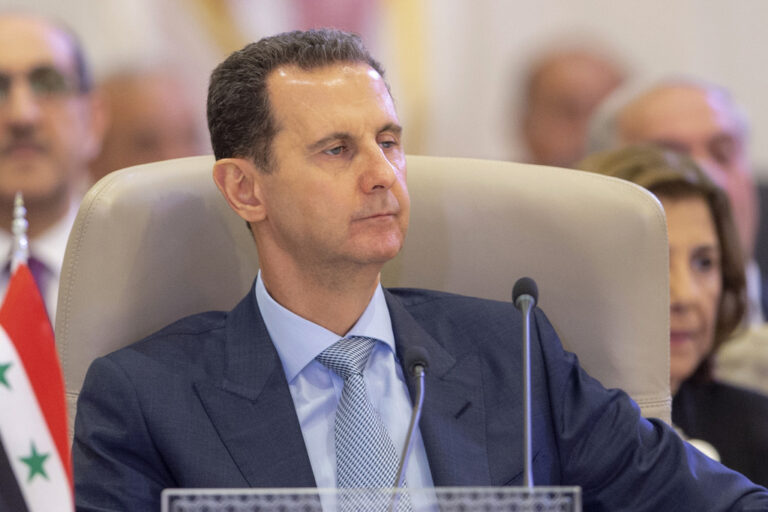 For eight years, it has been the most exclusive, and arguably most important, daily meeting in Washington. Each morning, President Barack Obama gathers his inner circle for the Presidential Daily Briefing, a run-through of the most important intelligence from around the world.
For eight years, it has been the most exclusive, and arguably most important, daily meeting in Washington. Each morning, President Barack Obama gathers his inner circle for the Presidential Daily Briefing, a run-through of the most important intelligence from around the world.
The rules under Obama have been strict and unyielding: No substitutes are permitted if one of the six regular attendees is out sick or traveling. No straphangers are allowed to linger in the Oval Office and watch.
Unlike just about every other meeting involving Washington officialdom, this one rarely, if ever, leaks.
Now it looks as if the PDB’s status as Washington, D.C.’s most indispensable briefing could be coming to an end.
“I get it when I need it,” said President-elect Donald Trump, who so far is taking the PDB only a few times a week. “I’m, like, a smart person. I don’t need to be told the same thing and the same words every single day for the next eight years.”
Those remarks have set off fears that Trump could miss a critical piece of intelligence and raised bigger questions about the president-elect’s attention span and interest in foreign policy.
Some Democrats have expressed alarm at Trump’s decision not to sit through the PDB each morning with his staff members.
“I think it is totally irresponsible in a post-9/11 world,” said Derek Chollet, a former senior official in the Obama administration. “It is a kind of malpractice.”
Some Republicans downplayed those concerns, noting that retired Army Lt. Gen. Michael Flynn, Trump’s pick for national security adviser, could summarize the intelligence for him.
“That’s a legitimate way to do it,” said Stephen Hadley, who held the same position under President George W. Bush. “It really depends on how the president likes to take information.”
This much is clear, however: Trump’s decision to skip the morning briefing with his top staff members could upend how big foreign policy decisions are made in Washington and shift the balance of power in a city obsessed with access, influence and power.
Not all presidents have summoned their most trusted staff members to the Oval Office for the daily intelligence briefing. President John F. Kennedy received a daily President’s Intelligence Checklist, known as the PICL or “pickle,” which he tucked into his suit jacket and consulted over the course of the day.
Other commanders in chief, such as Presidents Jimmy Carter, Gerald Ford and Ronald Reagan, depended on their national security advisers to slog through the PDB for them and fill them in on its contents. President Bill Clinton liked to mark his briefing up with questions and comments for his secretary of state and national security adviser.
Perhaps the best-known PDB arrived at the White House on Aug. 6, 2001, and warned “Bin Ladin Determined To Strike U.S.” That PDB was prepared in response to questions that Bush had asked his CIA briefer about whether any intelligence reports pointed to a possible al-Qaeda attack inside the United States.
Under Obama, who centralized foreign policy decision-making in the White House and loathed leaks, the PDB took on an even larger role. Typically, Obama will read his version of the PDB on his iPad before he sits down with staff members.
The actual briefing takes about only 10 minutes each morning, followed by a longer discussion between the president and his immediate staff members.
A couple of dozen senior administration officials receive a hard copy of the PDB each morning that is also presented by a CIA briefer. “When you are out of government and aren’t getting it, you feel like you are operating without oxygen,” said Julie Smith, a former foreign policy adviser to Vice President Joe Biden and senior fellow at the Center for a New American Security. “You felt left out.”
An even smaller group sits down with the president each morning to discuss the briefing and the administration’s top foreign policy priorities.
“For me personally, the most valuable insights I could get about the president’s priorities and views came out of that meeting,” said Smith, who was never admitted to the meeting but would often get a readout from the vice president.
Senior White House officials described the daily briefing and the conversation that follows, which lasts about an hour, as a “forcing function.”
Most of the issues that cross the president’s desk are domestic in nature. The morning briefing was a guaranteed block of time on Obama’s calendar every day in which he was “laser-focused on foreign affairs,” said a senior administration official who, like others, spoke on the condition of anonymity to discuss internal practices.
The morning meeting under Obama was more than just an intelligence download. Over time, it became a way for the president “to pull the levers of government in real time,” the official said. Obama would use the briefing to ask questions of his senior staff members or press them for new approaches to the biggest problems of the day.
For those on the outside, including Obama’s defense secretary and secretary of state, the morning meeting also was a source of grumbling. Upon leaving government, former defense secretary Robert Gates blasted the Obama White House as “by far the most centralized and controlling in national security of any I had seen since Richard Nixon.”
Some of that micromanaging no doubt originated with the morning PDB.
Over the past eight years, senior White House staff members have lobbied to get into the Oval Office for the PDB, almost always with no success.
“So much of our time is wasted fighting for seats in meetings,” said a former top White House official who never made it into the morning meeting. “That’s the currency of our business. We don’t have weapons. We can’t deploy troops. It’s words and seats in meetings. That’s how you determine your value, and if you don’t make the cut it is soul crushing.”
Before she lost the election, Hillary Clinton’s foreign policy team was talking about how she might want to restructure the PDB to suit her leadership style. Among the questions being debated by her team was whether she should include the secretaries of state and defense.
Now, a big question is how Trump’s decision not to sit down every day for a top secret intelligence briefing will change the way foreign policy is run in Washington. The absence of a daily meeting will probably shift some power to Cabinet secretaries at the State Department and the Pentagon.
“The president’s input might not come until the end of the process after it has already been chewed up by the bureaucracy,” said Bruce Riedel, a senior fellow at the Brookings Institution and a former CIA analyst.
Washington insiders have begun to wonder what the Trump equivalent to the prized meeting will be. “Maybe it is a visit to his penthouse in New York for a meeting or maybe you get to fly with him?” Smith wondered. “Maybe people will be trying to get in Flynn’s office?”
Others have speculated whether the CIA might adjust the PDB to better suit Trump’s tastes. The CIA made short films to prepare Reagan, a former actor and well-known film buff, for his foreign trips and overseas summits.
Asked where he turned for military advice last year, Trump told “Meet the Press” host Chuck Todd, “I watch the shows.”
Maybe the CIA could use Trump’s love of cable news to better hold his attention, Chollet said.
“They could do a Fox News-style PDB?” he said. “Maybe that would be more interesting for him.”
(c) 2016, The Washington Post · Greg Jaffe











7 Responses
once again we have a YWN story with the source none other than the Washington Prust, a rag that is unarguably extremely anti Trump. so we have to understand the spin that is being presented here. with all the formal PDBs that Obama had during his 8 years, what did we benefit from it? a lousy Iran deal, right? throwing Iran billions of $, right? so why is everyone getting so bent out of shape? leave Mr Trump alone and let him do his job the way he sees fit. surely, everyone will agree, the way it’s been done the last 8 years was nothing less than a disaster.
Just like Richard Nixon distrusted the CIA and mostly ignored the briefings, I don’t blame President Trump for skipping the daily briefings from the CIA who’s out to destroy Trump before he even gets in.
President Trump is trying to build an honest government, how could he trust the CIA liars?
Media is going crazy!
Mr. Trump is just being polite. It is his way of telling the alphabet agencies that they are nearly useless. I am sure that he, like any other person in his income bracket, has private intelligence companies (that actually know what they are doing) to brief him. I suspect that the spooks in the swamp are about to see an avalanche of pink slips.
Obama’s everyday select few could be labeled “the lying few room”. Look at this approach got us. Look at the mess he is leaving us with, both domestically and around the world. PE Trump hopefully will know how to run our country like he ran his successful business empire.
For all of you who assume that Trump and his small cadre of Trumpkopfs somehow has better information on world affairs than the CIA or FBI, than you really have issues. While he may not need “daily” briefings, his dismissive and mindless comments about thousands of Americans who risk their lives to protect us is beyond crazy and is what scares many of his own party who fear for the future of our country.